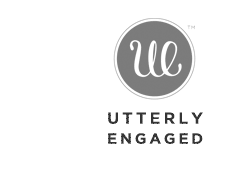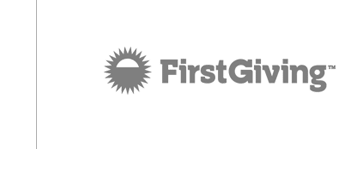The Role of Objectivity in Modern Digital JournalismWhen you consume news online, you’re faced with endless stories that promise facts but often blur the line between reporting and opinion. Objectivity should guide what you trust, but today’s digital journalism rarely offers a clear standard. Clicks and algorithms shape headlines, sometimes more than accuracy does. As you navigate this landscape, it’s worth questioning whether objectivity is still enough—or even possible—in a world where information moves faster than ever. Defining Objectivity: Historical Roots and Evolving StandardsObjectivity has historically been significant in the evolution of journalism, particularly since the late 19th century, when the field began to shift away from highly partisan reporting. In the context of American journalism, the concept of objectivity evolved to emphasize the presentation of news free from explicit bias, aiming to reach a wider audience and enhance credibility. This transition was influenced by economic factors and the growing emphasis on professional standards, leading to a journalistic approach that mirrored scientific principles. Critics, including notable figures like Walter Lippmann, have questioned the effectiveness of objectivity in achieving genuine truth, suggesting that it may instead promote a facade of neutrality that can obscure deeper issues. Recently, the standards surrounding objectivity have been reassessed, culminating in the Society of Professional Journalists’ decision to remove the term “objectivity” from its ethical guidelines. This change prompts a re-evaluation of the concepts of transparency and accountability in journalistic practice, suggesting a potential shift towards more nuanced understandings of reporting in contemporary society. The Decline of Public Trust in JournalismAs discussions surrounding journalistic objectivity continue to evolve, public confidence in the news media has markedly diminished. Recent surveys indicate that many Americans perceive a significant political bias in news reporting, which undermines the traditional journalistic standard of objectivity that was designed to enhance credibility and accountability. Contributing factors to this decline include the decrease in advertising revenue and the increasing corporatization of media outlets, which have posed challenges in delivering impartial reporting. Audience expectations have diversified; many seek affirmation of their viewpoints while also demanding factual, neutral coverage. This presents a complex dilemma for journalists, as striving to meet these conflicting expectations can contribute to a growing skepticism regarding their motives and fidelity to impartiality. The interplay of these dynamics highlights a critical challenge within the journalism field and its implications for public trust. Journalists’ Perspectives: Critiquing the Limits of ObjectivityIncreasingly, journalists are questioning the traditional value of objectivity within the profession. This shift has been largely driven by critiques from within news organizations that argue objectivity can reinforce existing power structures and overlook the narratives of marginalized communities. For instance, journalist Wesley Lowery posits that the pursuit of objectivity can perpetuate biases rather than eliminate them. Similarly, Masha Gessen advocates for an approach centered on moral clarity instead of neutrality. The Society of Professional Journalists has responded to these evolving perspectives by removing the term "objectivity" from its ethical code, highlighting a broader reconsideration of the principles that guide journalistic practice. Moreover, when newsrooms lack diversity, the implementation of “objective” reporting standards may unintentionally bolster narrow viewpoints and exclude a wider range of perspectives. This ongoing discourse suggests a critical reevaluation of how journalists can better serve diverse audiences while maintaining ethical standards. Audience Expectations in a Shifting Media LandscapeAudience expectations in today’s digital ecosystem have experienced notable shifts. Many consumers of news seek clear objectivity in journalism, aiming to receive information that's both impartial and balanced. There's an increasing demand for diverse perspectives; however, this is often accompanied by skepticism toward political bias. This skepticism can result in distrust towards media sources, complicating the relationship between audience preferences and their actual media consumption behaviors. The rapid dissemination of information in the digital age adds complexity to long-standing definitions of neutrality in reporting. Consumers now expect transparency and comprehensiveness from news organizations, as these elements are viewed as essential for rebuilding trust and credibility in journalism. Consequently, journalists face the challenge of balancing their commitment to fairness with the ever-evolving expectations and preferences of their audiences. The Influence of Digital Platforms on Reporting StandardsDigital platforms have significantly altered the landscape of news creation and distribution. While they've enabled broader participation in journalism by allowing anyone with internet access to publish articles, this shift has also led to a decline in traditional reporting standards that are crucial for maintaining journalistic integrity. In the current digital media environment, many entities publish content without adhering to established fact-checking processes, which are essential for ensuring objectivity in reporting. The rise of blogs and personal websites has contributed to the proliferation of sensationalism, which often takes precedence over balanced reporting. Moreover, traditional news organizations face economic pressures due to declining advertising revenues, much of which are captured by major technology companies. As a result, many news outlets are compelled to produce clickbait and partisan content as a strategy to attract readership and sustain their operations. This trend towards catering to polarized audiences has significant implications for journalistic standards. Instead of focusing on objective reporting, many organizations emphasize content that aligns with the interests and biases of specific demographic groups. Consequently, the foundational principles of accountability and impartiality that previously governed news reporting may be fundamentally altered in the evolving media landscape. Emerging Alternatives: Transparency, Independence, and BeyondIn the context of evolving journalism practices, traditional reporting standards are adapting to the challenges posed by the digital landscape. Journalists and news organizations are increasingly emphasizing transparency in their processes. This includes openly detailing the methods used for story research, the selection of sources, and the rationale behind editorial decisions. By being transparent, news outlets aim to build and sustain public trust. Independence in journalism is also gaining recognition as essential. Influential figures in the industry, such as A.G. Sulzberger, have highlighted the need for reporters to critically evaluate consensus and resist undue influence from external entities. This approach seeks to provide audiences with news that incorporates a variety of perspectives and comprehensive context. The movement towards greater transparency and independence in journalism reflects an understanding of audience expectations and a commitment to aligning with evolving ethical standards. These changes aim to address past deficiencies in representation and coverage, ultimately fostering a more responsible and trustworthy media environment. Essential Skills for Maintaining Credibility in the Digital AgeIn the evolving digital landscape, maintaining credibility requires a particular set of skills that distinguish responsible journalists. Sharp research skills are essential for gathering and verifying information from a range of sources, particularly in an environment where misinformation can spread rapidly. Critical thinking is necessary for evaluating evidence and identifying bias, which helps ensure that reporting is nuanced and fair. Effective interviewing techniques allow journalists to ask pertinent questions and engage in active listening, contributing to more balanced storytelling. Fact-checking is a crucial process to establish and maintain audience trust. Finally, ethical decision-making is fundamental at each step, reinforcing the commitment to objectivity and responsible journalism in all reporting efforts. The Future Identity of Journalism: Navigating Change and AccountabilityBuilding credibility in the digital age necessitates reevaluating the foundational principles of journalism. With a noticeable decline in traditional advertising revenue and a significant decrease in public trust, the industry is undergoing essential changes. There are increasing demands for accountability and transparency in journalism, which challenge previously held notions of neutrality. Legislative discussions regarding public funding for journalism are gaining traction, indicating a shift away from reliance on conventional revenue models. Additionally, ethical guidelines are evolving, moving beyond rigid adherence to objectivity. These changes reflect the growing recognition of the need for journalism to address and incorporate diverse perspectives, particularly those from marginalized communities. In response to these evolving expectations, journalism must emphasize accountability by providing context and depth to the stories it covers. Establishing trust with audiences and fulfilling the role of serving democracy are critical objectives for the industry in this transitional phase. The future trajectory of journalism will depend on the strategic choices made by practitioners and institutions today, as they adapt to these new challenges and opportunities. ConclusionAs you navigate today’s digital media maze, it’s clear that strict objectivity isn’t always enough. You’ve seen how transparency, ethical choices, and inclusive storytelling are becoming just as vital. In an age of rapid information—and rising skepticism—you can’t settle for the old rules. By embracing new standards and holding yourself accountable, you’re not just rebuilding trust—you’re shaping journalism’s future. The responsibility is yours, and so is the opportunity to redefine credibility in the digital age. |
|
Copyright © 2011 DL/sh Design. Utterly Engaged. Ever Ours. All Rights Reserved. |













